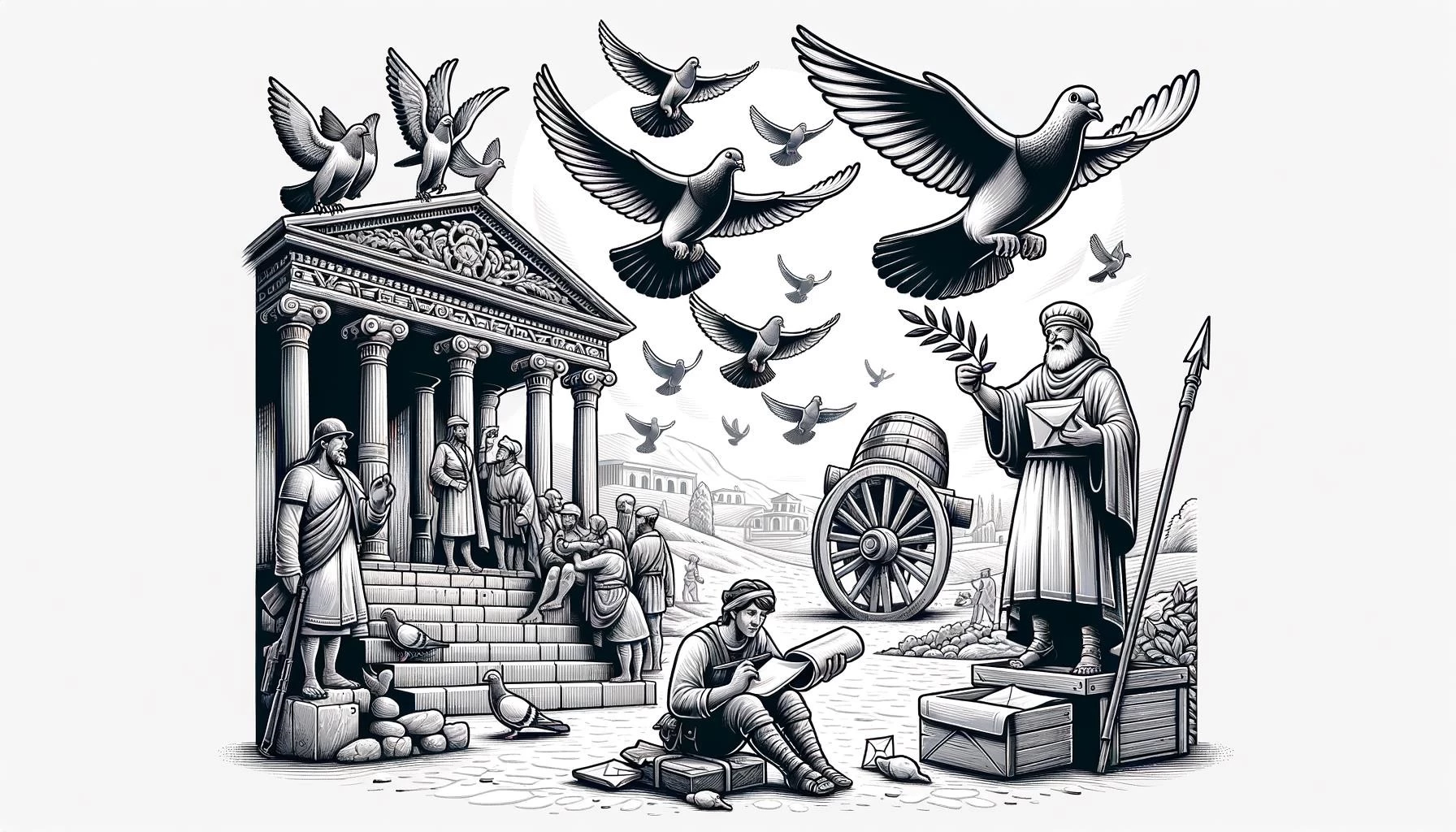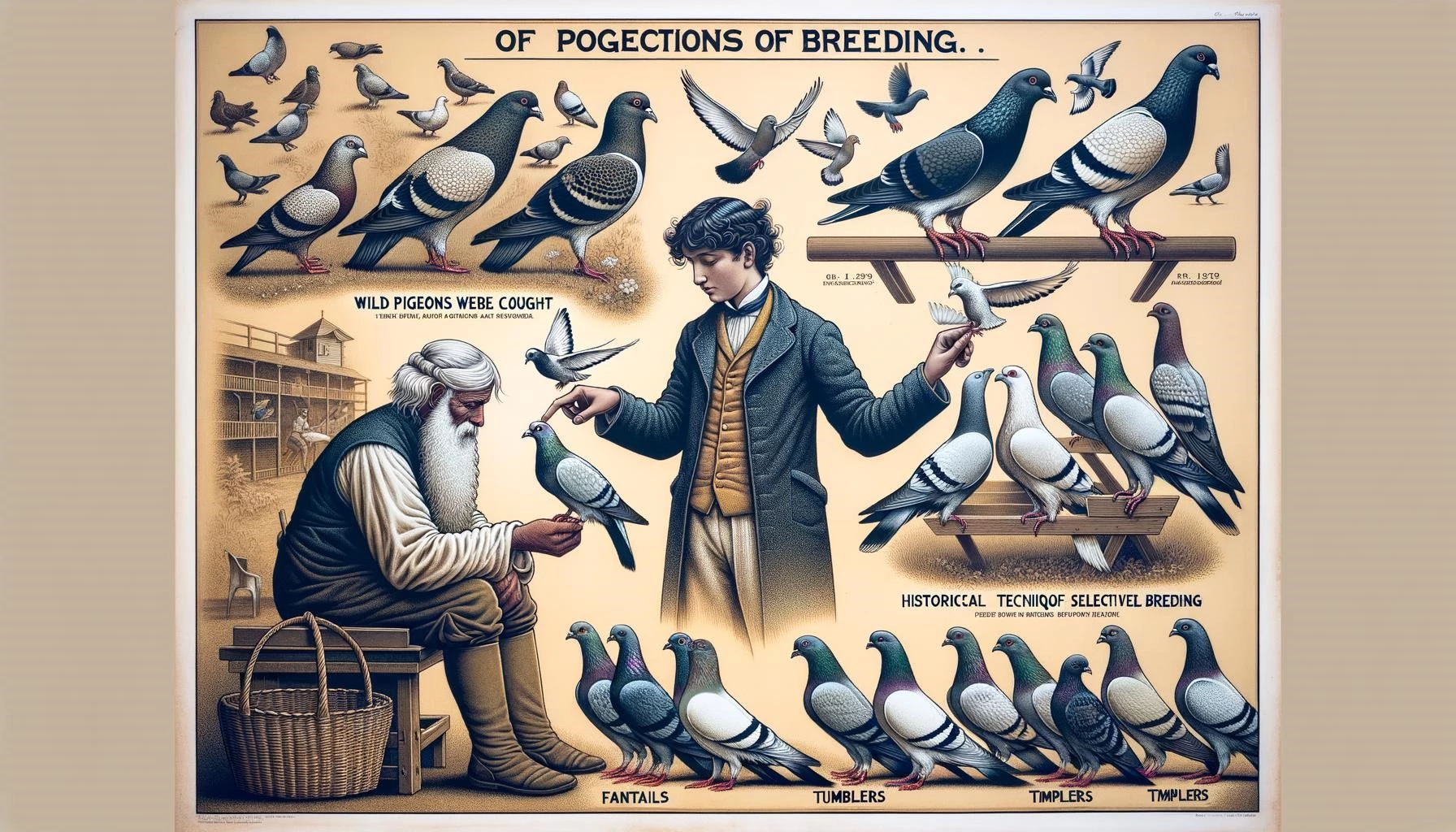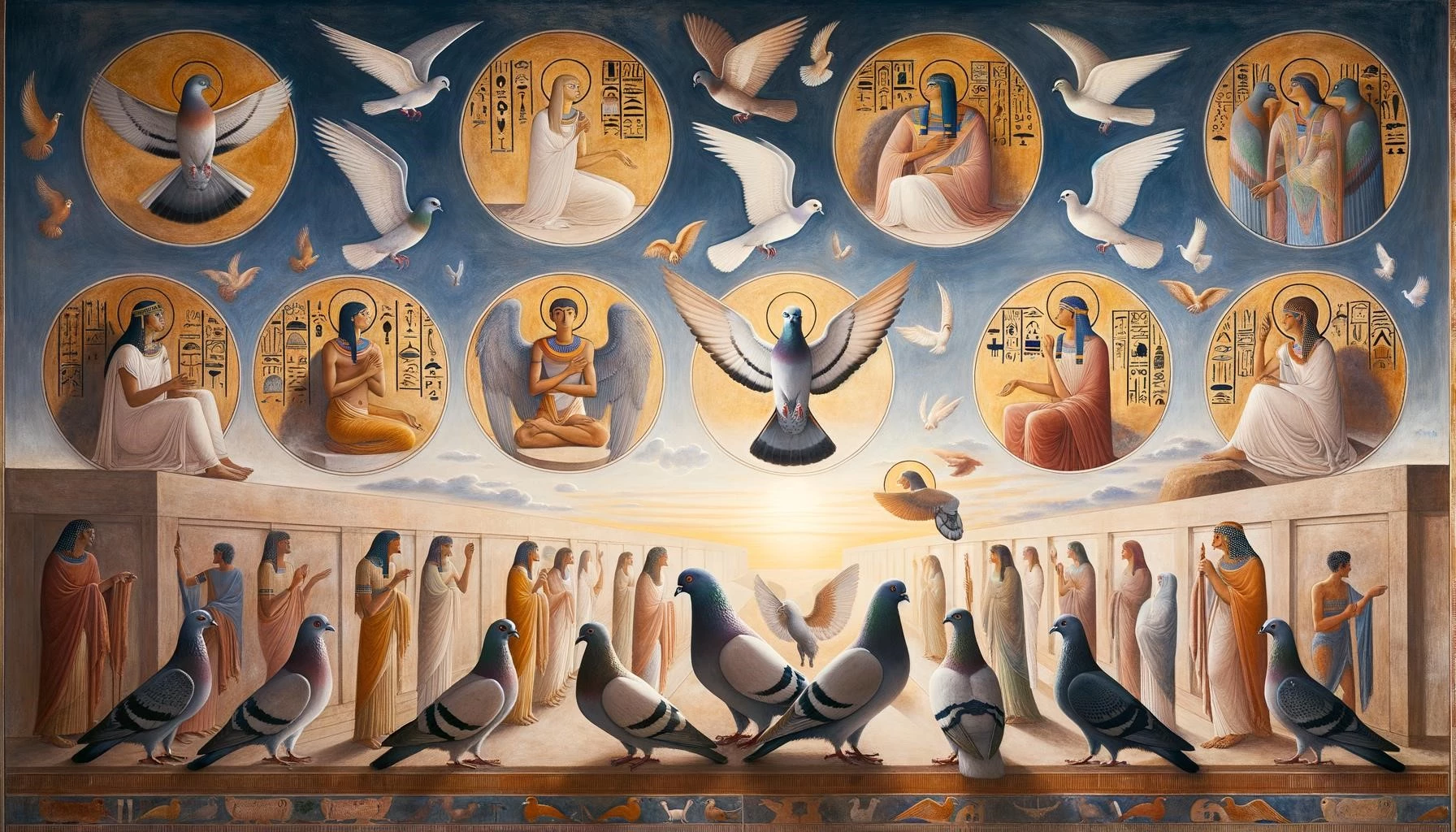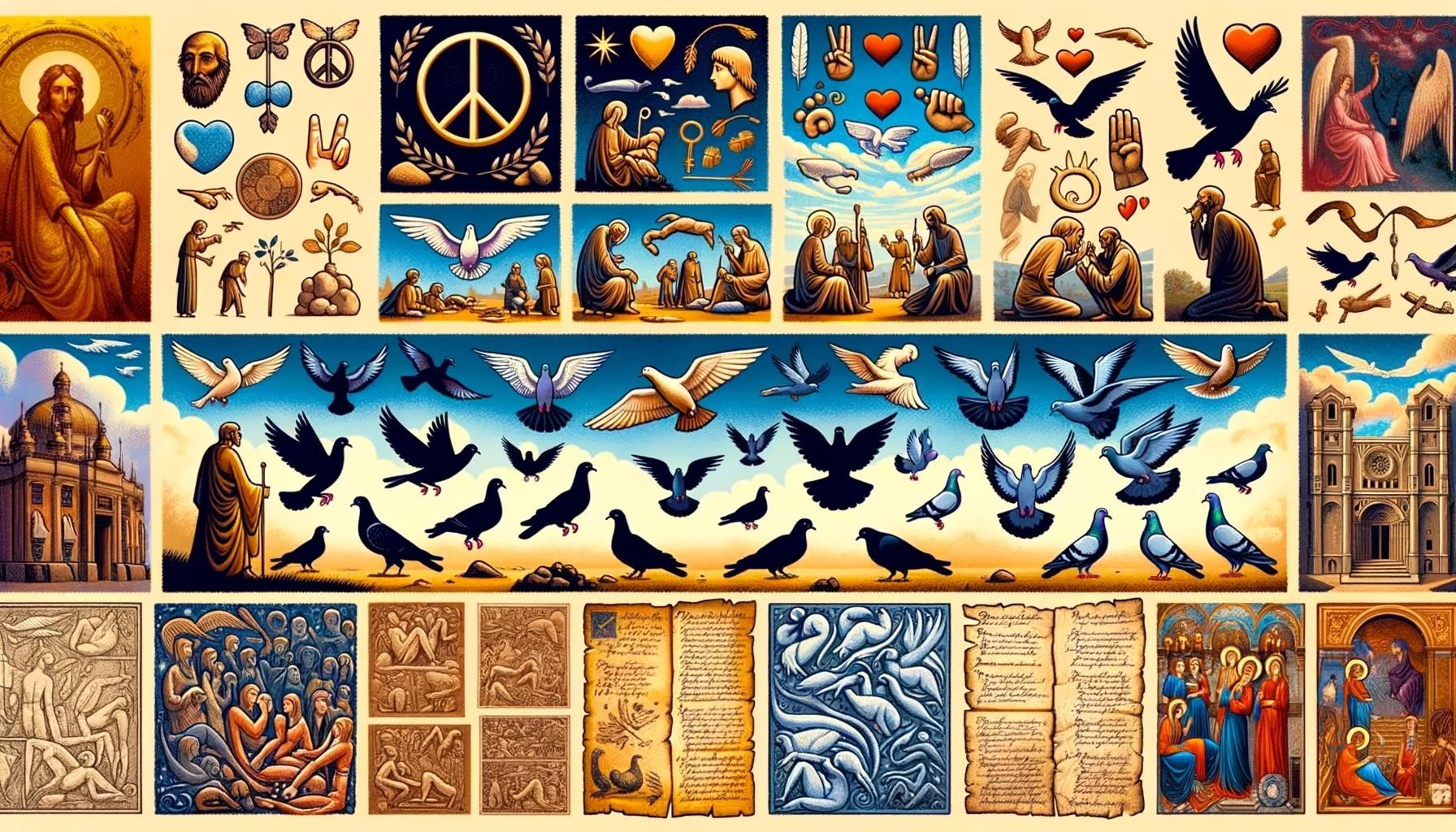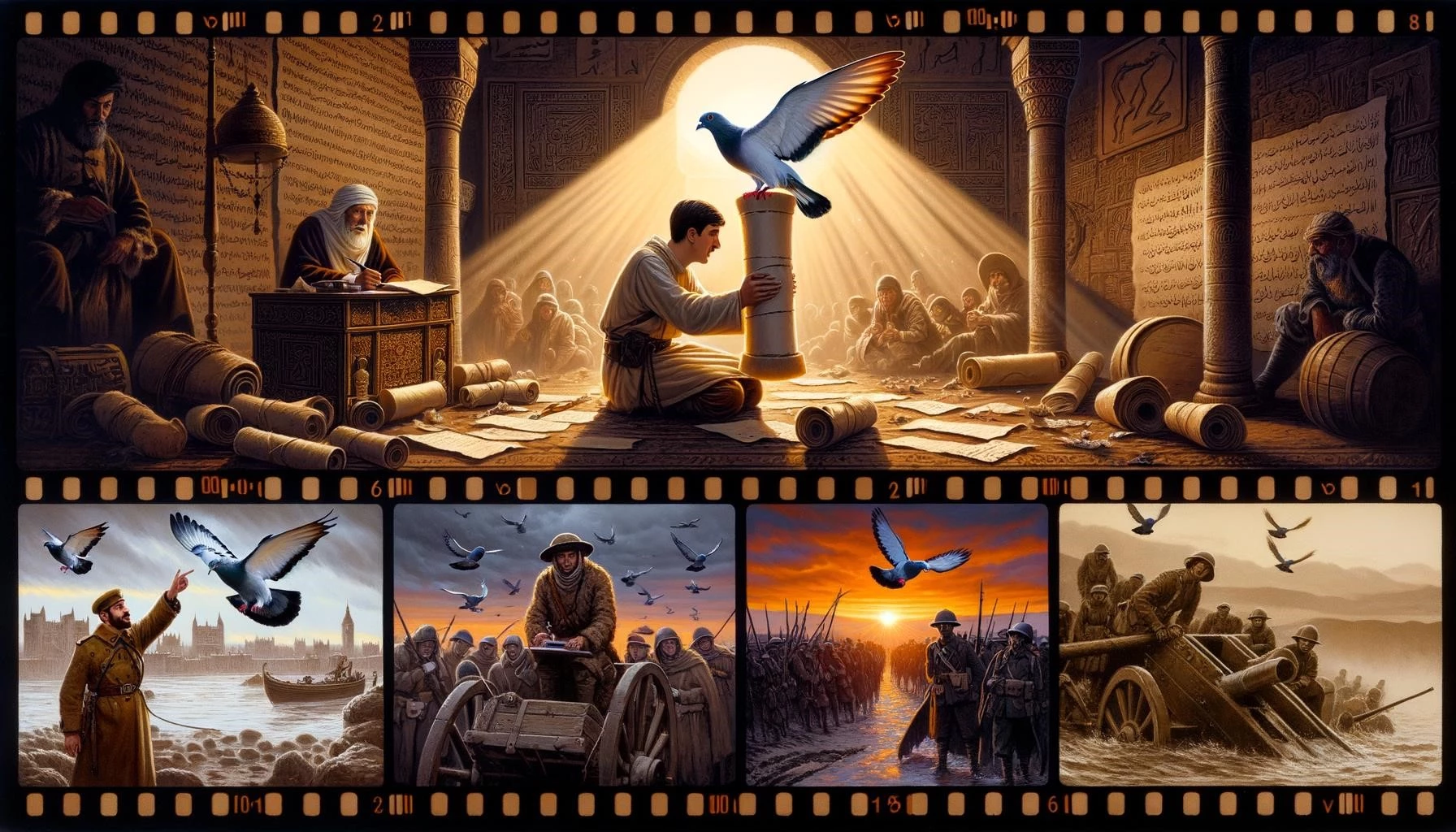Pigeons, especially the Rock Dove, have shared a deep-rooted bond with humans for up to 10,000 years. They have played significant roles in various aspects of human civilization, ranging from food sources to war messengers. Pigeons have also been iconic symbols of peace, love, and fidelity. They hold historical and cultural significance in different civilizations, religions, and artistic representations.
Key Takeaways
- Pigeons have been companions of humans for thousands of years, serving as messengers, food sources, and symbolizing peace and love.
- They have historical significance in various cultures, including ancient Egypt, Greece, and Christianity.
- Pigeons represent resilience, adaptability, and the ability to navigate through challenges.
Historical Significance and Cultural Symbolism
Pigeons have a profound historical background dating back to ancient times. In Egyptian culture, they were revered as sacred birds associated with the goddess Isis. In Greece, pigeons were believed to be connected to Aphrodite, the goddess of love. Throughout history, pigeons have been associated with fertility, renewal, and prosperity. They have held significance in various religions, including Christianity, where they symbolize the Holy Spirit and embody peace and purity.
During times of conflict, pigeons served as messengers due to their exceptional navigational abilities. They played crucial roles in delivering messages during World War I, World War II, and even the Vietnam War, bridging the gaps between troops and their commanders. Pigeons were also regarded as symbols of security and assurance, reminding people that they are protected and supported by higher powers.
In Hinduism, pigeons are associated with the soul, love, and devotion. In Celtic mythology, they are symbols of fertility and new beginnings. The symbolism of pigeons extends to the realm of relationships, where they represent loyalty, commitment, and love. Just as pigeons carried messages of peace in historical conflicts, they can help facilitate open communication and resolution of conflicts within relationships.
Artistic Representations and Modern Culture
Pigeons have captivated the minds of artists and writers throughout history, making appearances in paintings, sculptures, and poems. They have been portrayed as symbols of freedom, peace, and resilience. Artists like Pablo Picasso and William Butler Yeats have incorporated pigeons into their works, conveying profound meaning. Pigeons have also found their place in modern culture, appearing in movies, TV shows, and video games.
Pigeons have been utilized in advertising, becoming part of brand identities, and symbolizing qualities like trust, reliability, and adaptability. Their presence continues to captivate and inspire people, reminding them of the importance of inner peace, resilience, and harmony.
Overall, pigeons possess deep spiritual and symbolic meanings that transcend time and cultures. They remind us to embrace peace, love, and adaptability in our interactions with others and navigate through life’s challenges with grace and strength.



